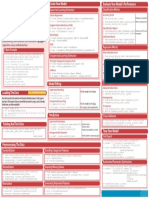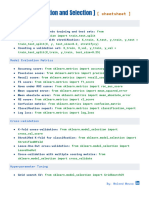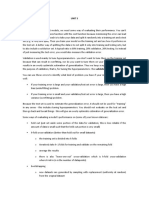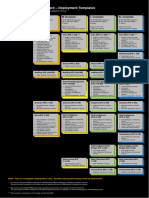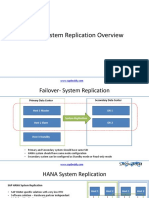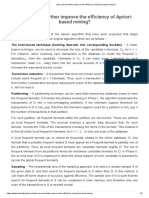0% found this document useful (0 votes)
27 views11 pagesSkit Learn Cheatsheet
Scikit-Learn is a Python library designed for data mining, data analysis, and machine learning, offering tools for data preprocessing, model training, evaluation, cross-validation, and hyperparameter tuning. Key functions include StandardScaler for feature standardization, LinearRegression for fitting linear models, and GridSearchCV for hyperparameter optimization. The library also supports creating pipelines to streamline multiple processing steps in machine learning workflows.
Uploaded by
saurabh kumarCopyright
© © All Rights Reserved
We take content rights seriously. If you suspect this is your content, claim it here.
Available Formats
Download as PDF, TXT or read online on Scribd
0% found this document useful (0 votes)
27 views11 pagesSkit Learn Cheatsheet
Scikit-Learn is a Python library designed for data mining, data analysis, and machine learning, offering tools for data preprocessing, model training, evaluation, cross-validation, and hyperparameter tuning. Key functions include StandardScaler for feature standardization, LinearRegression for fitting linear models, and GridSearchCV for hyperparameter optimization. The library also supports creating pipelines to streamline multiple processing steps in machine learning workflows.
Uploaded by
saurabh kumarCopyright
© © All Rights Reserved
We take content rights seriously. If you suspect this is your content, claim it here.
Available Formats
Download as PDF, TXT or read online on Scribd
/ 11


